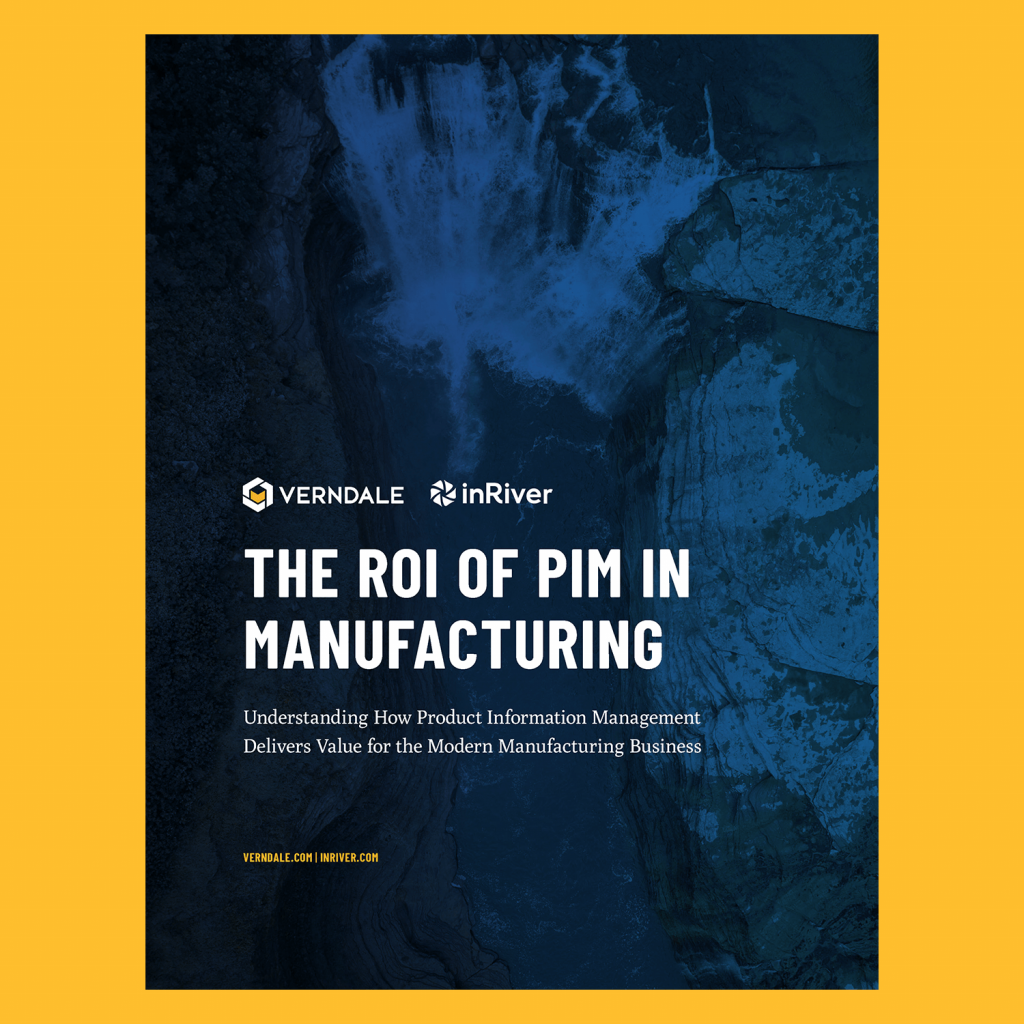PIM for manufacturing
cut through product data complexity with PIM
Accelerate your digital transformation with Product Information Management software that powers the complete omnichannel product journey for manufacturing.
Manufacturers today grapple with an array of challenges. Whether they produce farm equipment, furniture, or pharmaceuticals, manufacturers face ever-expanding product catalogs, stringent regulatory requirements, and a digitally-native consumer base who want a complete and compelling product experience on every channel.
As manufacturers navigate an increasingly omnichannel world, effective product data management is business-critical. Not only to ensure comprehensive onboarding of supplier data from multiple systems and departments, but to also enrich and distribute this information to relevant audiences, whether end consumers, third-party resellers, or regulators.
Product Information Management (PIM) systems address these pressing needs head-on. By establishing a centralized hub of product information, For manufacturers, PIM streamlines composable commerce operations, cuts time to market, and establishes a single, scalable source of data across your organization.
What is a PIM solution?
A PIM solution is a centralized hub for all product data for both internal and external channels. An advanced PIM system ensures accurate, up-to-date, and consistent data flows throughout your entire circular product journey. It does this by onboarding raw data from suppliers and third-party partners, enriching this data into complete, compelling, and compliant product information, and then distributing this information to all owned and third-party endpoints.

Benefits of PIM for manufacturers
For manufacturers facing intensifying global competition and consumer demands, implementing a PIM solution can transform your operational efficiency, empower smarter (and quicker) internal decision-making, and ultimately engage more buyers across more markets with product information that moves to the dial on purchase decisions.
The benefits of a PIM for manufacturers include:
- Single source of truth: PIM systems act as a single source of data truth, providing a unified and reliable product data repository. This centralization is crucial for manufacturers managing thousands of products and components, ensuring that everyone in the organization, from design to sales, has access to the same accurate information.
- Internal efficiencies and automated workflows: By automating and streamlining data management in manufacturing, PIM significantly reduces the time and money spent manually managing product data. With an advanced PIM solution like inriver, manufacturers can automate repetitive data entry, receive automatic alerts to errors, distribute enriched product data across channels with one click, and so much more.
- Meeting regulations and compliance: Compliance with industry standards and regulations is non-negotiable in manufacturing. Product data management with a PIM system helps ensure compliance in every new and existing market by giving all personnel easy access to product information that is accurate, up-to-date, and adhering to the latest regulatory requirements.
- Scaling into new markets and channels: As manufacturers look to expand their reach, PIM provides the agility to enter new markets and channels with ease and speed. With a Product Information Management system that has generative AI-powered content creation and syndication, you can quickly adapt product information to different markets, channels, and even languages—giving you an upper hand in globalized markets.
- Structured product-attribute-part relationships: As products across all industries become increasingly complex, the ability to manage the complex relationships between product, part, attribute, and component is crucial. An advanced Product Information Management system built on a fully extensible PIM data model allows for limitless data relationships between products, parts, attributes, and components. Not only does this support smarter product groupings for a winning after-sales strategy, but also scales with your product catalog as it evolves with new products, ranges, markets, and more.
- Contextualized customer experiences: A personalized customer experience is a priority for today’s consumers, whether B2B or B2C. PIM allows manufacturers to provide contextualized product information tailored to different customer segments and sales channels, providing better customer experience and guaranteeing a lasting impression.
- Consolidated buyer journeys: When buyers have higher-quality, more organized product information to work with, their buying experience becomes easier. By utilizing a PIM, you can consolidate the buyer journeys of your customers to help them convert in days or weeks, not months or years.
With these advantages, manufacturers can better navigate the challenges of a dynamic global marketplace, meet evolving customer demands, and maintain a competitive edge in their industry.

How PIM helps manufacturers succeed in e-commerce
The recent consumerization of B2B buying has transformed the manufacturing industry. As manufacturers who had typically not bothered with e-commerce activities look to elevate their online channels, the need for a more organized approach to product information management has become apparent.
PIM allows manufacturers to thrive in e-commerce in several ways. First, PIM ensures that product information is rich, accurate, engaging, and relevant for the particular audience. Secondly, PIM with integrated syndication technology ensures accurate product information that’s distributed accurately and instantaneously across all owned and third-party digital channels.
By automating content updates and ensuring data accuracy, PIM systems help manufacturers bolster their digital presence, enhance customer engagement, and ultimately drive more sales.
Important PIM features for manufacturing
Off-the-shelf PIM systems are not designed with the unique needs of manufacturing in mind. Only an advanced PIM solution has the key PIM features that help manufacturers take their sales and marketing operations to the next level:
- Fully extensible data model: Manufacturers need the flexibility to support limitless parts, products, product relationships, accessories, and more. Fully extensible data models do just that, for even the most complex product catalogs. PIM built with extensible data models ensures manufacturers maintain a clear grasp of product data.
- Seamless integration: Many manufacturers have complex tech environments, involving several programs that need to work together to build success. An advanced PIM solution offers seamless integration with all major operational software, elevating your entire tech stack without hassle.
- Comprehensive digital asset management: From technical documentation to drawings and images, digital assets are key to successful B2B sales. An advanced PIM solution integrates streamlined digital asset management capabilities to provide all endpoints with accurate, up-to-date, and compelling digital assets.
- Upstream-downstream data connectivity: Manufacturing-focused PIM solutions onboard and enrich data across every point of the circular product journey. They connect product data from upstream sourcing and design phases to downstream experiences with consumers, regulators, and other stakeholders—composing a closed-loop picture of your product performance.
- Digital shelf management: For manufacturers seeking to remain competitive in an always-on digital marketplace, the ability to monitor and optimize online sales channels is key. An advanced PIM with integrated digital shelf analytics (DSA) capabilities provides real-time, data-driven insights on product performance, buyer behavior, and channel competition across the digital shelf.
By prioritizing these high-impact features, manufacturers can find the right PIM solution that unlocks a new level of efficiency and productivity in their organization.

Circular product journeys in manufacturing
In a clear departure from the “make-use-dispose” model of the past decades and even centuries, manufacturers today are growing aware of the need to build circularity into their products. This is driven by evolving consumer expectations surrounding sustainability, regulatory demands for transparency, and manufacturers themselves seeking greener products and processes.
Manufacturers prioritizing the transition towards a circular business model are already seeing a competitive advantage. By moving to circular product journeys, manufacturers can meet the needs of today and tomorrow and help build a greener future. An advanced PIM system supports this transition by enabling manufacturers to effectively manage product info at every stage of the circular product journey:
- Source + Design
- Make
- Take to Market
- Sell
- Use + Reuse
- Repair + Retire + Recycle
For more information on the circular product journey, and how PIM implementation powers the transition towards circularity for manufacturers across all sectors and industries, read the complete inriver guide.
Integration with manufacturing systems
With critical product data fragmented across 6 different systems in the average organization, a PIM solution represents a huge opportunity for data streamlining. Not only can a PIM consolidate your tech stack, but it can also integrate seamlessly within it, giving you the minimum number of tools and maximum clarity.
By integrating PIM into your tech stack, manufacturers can:
- Break down data silos, introducing organization-wide process consistency by connecting systems through shared workflows.
- Ensure data accuracy as automated updates propagate across departments in real-time, eliminating redundant manual efforts.
- Give stakeholders access to identical, up-to-date data spanning operational, compliance, and market-ready details.
- Future-proof with additional API-based integrations, allowing manufacturers to easily connect analytics tools, inventory data, and smart supply chain applications.
With an integrated stack centered around PIM, manufacturers gain an adaptable foundation for streamlined processes, enhanced visibility, and future flexibility.

Why is PIM important for manufacturers?
By centralizing and automating the management of intricate product data, PIM enhances productivity and liberates teams to refocus on growth and innovation. When you can enter marketplaces faster, with better product info, you can connect with more of your ideal customers and grow your organization without burning out your employees.
The volume and complexity of product data in manufacturing is a reality of the business. PIM transforms that data from an obstacle to an advantage.
inriver: The PIM for manufacturing excellence
With complex product catalogs, increasingly omnichannel sales strategies, and discerning buyers and regulators, the challenges facing manufacturers are clear. That’s why so many global manufacturing leaders are turning to Product Information Management software from inriver to help them use product data to meet the needs of today and exceed the expectations of tomorrow.
The multi-tenant inriver PIM solution offers the complete product software for manufacturers, transforming raw value chain data into rich, meaningful, and engaging product information for the right audience, on the right channel, at the right time. With API-based syndication and digital shelf analytics integrated into the inriver platform, manufacturers can build a brighter future for their customers, their products, and their profit margins.
want to see the inriver PIM in action?
Schedule a personalized, guided demo with an inriver expert today to see how the inriver PIM can get more value from your product information.
